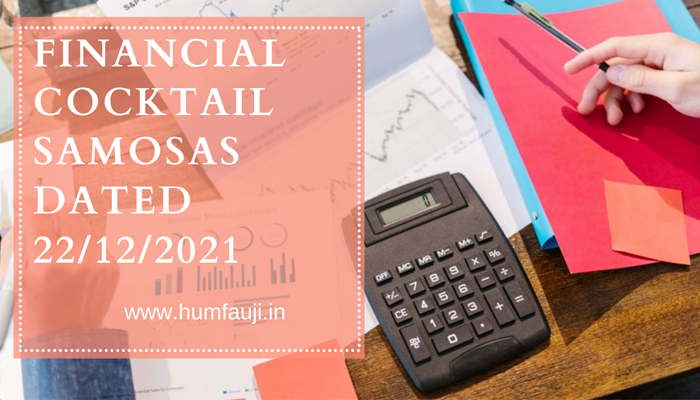Are the good ‘ol NSC and KVP worth investing in current era?
With a literal explosion of financial products on the Indian investment landscape currently, while many investors have started exploring ‘new’ investment avenues, there are many who are still sticking to the traditional post office products. Let’s talk about two traditional investment products, NSC and KVP, today and reevaluate their relevance…!!
NSC (National Savings Certificate) and KVP (Kisan Vikas Patra)

Should I invest in any of these?
Average inflation rate in India is 6% per annum. Something like children’s education is inflating at an average rate of 10% p.a. Similar trend is apparent in other critical sectors too. This means one gets a negative inflation-and-tax adjusted return in both these investments. There is also no flexibility with the investor as a strict maturity date is followed. However, there is literally no risk in both these products as they are backed by a sovereign guarantee.
Are there other competing options available?
Avenues like Debt Mutual Funds, Corporate Bonds, PSU Bonds, State Govt Bonds, Corporate FDs etc can provide you options where a lot of flexibility and better returns are possible. Depending on making the correct choice of products and choosing the right combination as per your future requirements (‘financial goals’), they could be inflation beating and give better tax efficiency.
(Contributed by Ayushi Gupta, Associate Financial Planner, Team Arjun, Hum Fauji Initiatives)
Why is there so much noise about Bharat Bond ETF?
It’s just as simple – Bharat represents Public Enterprises of India; Bond represents a fixed income investment avenue providing fixed rate of interest similar to a Bank FD.
Bharat Bond ETF is an exchange-traded fund that currently invests only in ‘AAA-rated bonds’ of public sector companies. Edelweiss Asset Management manages this scheme.
Being an ETF, it can be bought and sold directly through stock exchange. Any individual or non-individual resident (including NRIs) can invest in it through their Demat account.
Any risks Involved?
- Price Risk: If you withdraw or redeem before maturity, your returns could be less or more than the returns stated at maturity due to everyday price volatility on the exchange price of this ETF.
- Default Risk: Negligible as a Govt of India initiative.
- Liquidity Risk: As traded on exchange with large anticipated volumes, there is no major liquidity risk likely in it.
Taxation? Taxation will be similar to debt mutual funds. Long Term Capital Gain (ie, more than 3 years holding period) will be taxed at 20% post indexation benefits; any sale earlier than this will attract tax as per investor’s income slab rate.
Returns? The last tranche offered 6.8% pa gross returns for the bonds with maturity period of 10 years.
Should you invest in it?
Right now, the inflation rate is low and interest rates are low. As interest rates go up, the price of this bond will go down in the open market – interest rates and price of existing bonds move inversely proportional to each other. Of course, interest rates move in a cycle and the prices may come up too when the cycle reverses years later. Hence, one should only invest in it t current juncture if one can stay committed with this investment right till the maturity.
(Contributed by Rama K, Financial Planner, Team Arjun, Hum Fauji Initiatives)
Are NFOs and IPOs different? Which one should one buy?
NFO stands for New Fund offer and pertains to a new mutual fund (MF) scheme being launched.
IPO stands for Initial Public Offering for a new share being listed in the stock market.
In NFO, the mutual fund company (also referred to as Asset Management Company or the AMC) announces a new scheme to invite subscription from the public. A NFO is worth a look only if it offers something different from what is already available in the mutual fund space. If not so, then why should one not go in for an existing scheme which already has an established track record. In general, most of the NFOs are simply old wine in new bottle and may not be worth considering for investment.
In an IPO, a privately held company decides to change its status and offer its shares to public at large. Whether the IPO is worth subscribing or not merits a very detailed analysis of its value preposition, business, profitability, future outlook, stock market perceptions of such a company and its industry, and many more such factors. After the IPO, the shares will be available in the stock market just like other regular shares and can be traded through a demat account.
Now the question of what should you buy? In a MF, there is a fund manager and his management team managing the investment decisions and you only have to monitor the MF’s performance typically once in Six months or so. A stock purchase is entirely your responsibility – to buy, buy at the right time, monitor performance of the company, and choose the right time and price to sell. So typically, a stock would be more volatile than a corresponding MF and requires more experienced hands to manage.
But to come back to the original question of whether to buy a NFO or a IPO, we would say:
- Almost never ever buy a NFO.
- Buy a IPO only if you’ve done hard-work analysis of the stock and are convinced that it is good for you, you can manage it and you want to hold it for the long term.
(Contributed by Jatin Uppal, Deputy Manager, Hum Fauji Initiatives)



